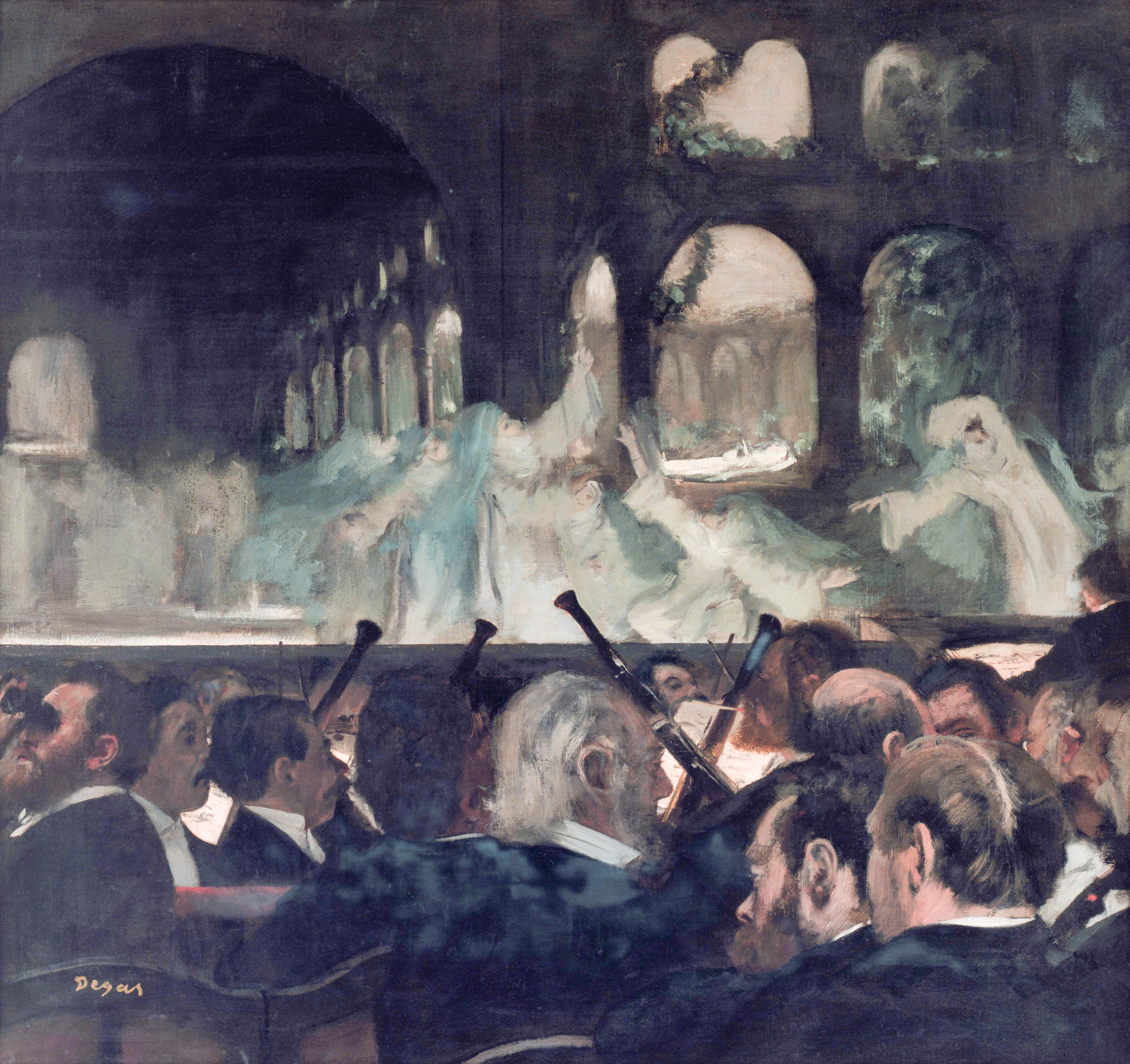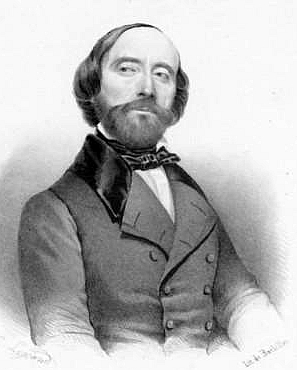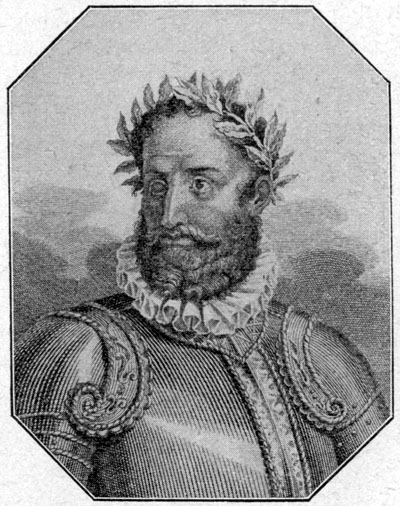|
Dom Sébastien
''Dom Sébastien, Roi de Portugal'' (''Don Sebastian, King of Portugal'') is a French grand opera in five acts by Gaetano Donizetti. The libretto was written by Eugène Scribe, based on Paul Foucher's play ''Don Sébastien de Portugal'' which premiered at the Théâtre de la Porte-Saint-Martin on 9 November 1838 It is a historic-fiction about King Sebastian of Portugal (1554–1578) and his ill-fated 1578 expedition to Morocco. The opera premiered on 13 November 1843 at the Salle Le Peletier of the Paris Opéra. This was the last opera that Donizetti completed before going insane as a result of syphilis. At the time, Donizetti was attempting to compose an opera competitive with similar historical operas by Daniel Auber, Fromental Halévy and Giacomo Meyerbeer. One critical description of the nature of ''Dom Sébastien'' is "a funeral in five acts". By contrast, Winton Dean has described the main characteristic of the opera as "uncompromising dramatic honesty" in his comments on ... [...More Info...] [...Related Items...] OR: [Wikipedia] [Google] [Baidu] |
Grand Opera
Grand opera is a genre of 19th-century opera generally in four or five acts, characterized by large-scale casts and orchestras, and (in their original productions) lavish and spectacular design and stage effects, normally with plots based on or around dramatic historic events. The term is particularly applied (sometimes specifically used in its French language equivalent grand opéra, ) to certain productions of the Paris Opéra from the late 1820s to around 1850; 'grand opéra' has sometimes been used to denote the Paris Opéra itself. The term 'grand opera' is also used in a broader application in respect of contemporary or later works of similar monumental proportions from France, Germany, Italy, and other countries. It may also be used colloquially in an imprecise sense to refer to 'serious opera without spoken dialogue'. Origins Paris at the turn of the 19th century drew in many composers, both French and foreign, and especially those of opera. Several Italians working d ... [...More Info...] [...Related Items...] OR: [Wikipedia] [Google] [Baidu] |
Winton Dean
Winton Basil Dean (18 March 1916 – 19 December 2013) was an English musicologist of the 20th century, most famous for his research on the life and works—in particular the operas and oratorios—of George Frideric Handel, as detailed in his book ''Handel's Dramatic Oratorios and Masques'' (1959). Dean was born in Birkenhead in March 1916, the son of the film and theatre producer Basil Dean.Sadie, Stanley. Winton (Basil) Dean. In: ''The New Grove Dictionary of Opera''. Macmillan, London & New York, 1997. He was educated at Harrow and King's College, Cambridge, where he took part in stagings of Handel oratorios in the 1930s. After World War II, he became notable as a writer on music, particularly when he published several articles about the compositions of Bizet, starting with ''La Coupe du roi de Thulé'' in ''Music & Letters'' in 1947. He considerably rewrote his 1948 book on Bizet in 1965 due to new material and music of the composer which had since emerged. Porter, Andrew. O ... [...More Info...] [...Related Items...] OR: [Wikipedia] [Google] [Baidu] |
Ferdinand Prévost
Ferdinand is a Germanic name composed of the elements "protection", "peace" (PIE "to love, to make peace") or alternatively "journey, travel", Proto-Germanic , abstract noun from root "to fare, travel" (PIE , "to lead, pass over"), and "courage" or "ready, prepared" related to Old High German "to risk, venture." The name was adopted in Romance languages from its use in the Visigothic Kingdom. It is reconstructed as either Gothic or . It became popular in German-speaking Europe only from the 16th century, with Habsburg rule over Spain. Variants of the name include , , , and in Spanish, in Catalan, and and in Portuguese. The French forms are , '' Fernand'', and , and it is '' Ferdinando'' and in Italian. In Hungarian both and are used equally. The Dutch forms are and '' Ferry''. There are numerous short forms in many languages, such as the Finnish . There is a feminine Spanish, Portuguese and Italian form, . Royalty Aragón/León/Castile/Spain *Ferd ... [...More Info...] [...Related Items...] OR: [Wikipedia] [Google] [Baidu] |
Paul Barroilhet
Paul-Bernard Barroilhet (22 September 1810 – April 1871) was a French operatic baritone. Career Barroilhet was born in Bayonne. He studied at the Conservatoire de Paris and then with David Banderali in Milan. He began his career in Italy during the early 1830s, performing under the name Paolo Barroilhet and making a name for himself as an exceptional singer, particularly in Naples. He returned to France in 1840 to join the roster of artists at the Opéra National de Paris, where he performed under his birth name. However, he left the Paris Opera in 1847 after differences with the company's management. The by now wealthy Bairrolhet elected to withdraw completely from the stage and he found a new vocation as a painter and art collector. He came out of retirement briefly for appearances in Madrid in 1851–1852, performing Don Carlo in '' Ernani''. Barroilhet is best remembered today for originating roles in several operas by Gaetano Donizetti and Fromental Halévy. For ... [...More Info...] [...Related Items...] OR: [Wikipedia] [Google] [Baidu] |
Baritone
A baritone is a type of classical male singing voice whose vocal range lies between the bass and the tenor voice-types. The term originates from the Greek (), meaning "heavy sounding". Composers typically write music for this voice in the range from the second F below middle C to the F above middle C (i.e. F2–F4) in choral music, and from the second A below middle C to the A above middle C (A2 to A4) in operatic music, but the range can extend at either end. Subtypes of baritone include the baryton-Martin baritone (light baritone), lyric baritone, ''Kavalierbariton'', Verdi baritone, dramatic baritone, ''baryton-noble'' baritone, and the bass-baritone. History The first use of the term "baritone" emerged as ''baritonans'', late in the 15th century, usually in French sacred polyphonic music. At this early stage it was frequently used as the lowest of the voices (including the bass), but in 17th-century Italy the term was all-encompassing and used to describe the averag ... [...More Info...] [...Related Items...] OR: [Wikipedia] [Google] [Baidu] |
Luís De Camões
Luís Vaz de Camões (; sometimes rendered in English as Camoens or Camoëns, ; c. 1524 or 1525 – 10 June 1580) is considered Portugal's and the Portuguese language's greatest poet. His mastery of verse has been compared to that of Shakespeare, Milton, Vondel, Homer, Virgil and Dante. He wrote a considerable amount of lyrical poetry and drama but is best remembered for his epic work '' Os Lusíadas'' (''The Lusiads''). His collection of poetry ''The Parnasum of Luís de Camões'' was lost during his life. The influence of his masterpiece ''Os Lusíadas'' is so profound that Portuguese is sometimes called the "language of Camões". The day of his death, 10 June OS, is Portugal's national day. Life Origins and youth Much of the information about Luís de Camões' biography raises doubts and, probably, much of what circulates about him is nothing more than the typical folklore that is formed around a famous figure. Only a few dates are documented that guide its trajectory. ... [...More Info...] [...Related Items...] OR: [Wikipedia] [Google] [Baidu] |
Nicolas Levasseur
Nicolas Levasseur (9 March 1791 – 7 December 1871) was a French bass, particularly associated with Rossini roles. Born Nicolas-Prosper Levasseur at Bresles, Oise, he studied at the Paris Music Conservatory from 1807 to 1811, with Pierre-Jean Garat. He made his professional debut at the Paris Opéra in 1813, as Osman Pacha, in ''La caravane du Caire'' by André Grétry. He sang in London at the King's Theatre from 1815 to 1817, notably as the Count in Mozart's ''Le nozze di Figaro''. He also sang at La Scala in Milan, from 1820 to 1822, where he took part in the creation of Meyerbeer's ''Margherita d'Anjou''. But his greatest successes were at the Théâtre-Italien in Paris, where he sang from 1819 until 1828. There his name became closely associated with Rossini's operas. He sang in the Paris premieres of ''Mosè in Egitto'', ''Ricciardo e Zoraide'', ''La cenerentola'', ''La donna del lago'', and he participated in the creation of ''Il viaggio a Reims''. Levasseur retur ... [...More Info...] [...Related Items...] OR: [Wikipedia] [Google] [Baidu] |
Bass (voice Type)
A bass is a type of classical male singing voice and has the lowest vocal range of all voice types. According to ''The New Grove Dictionary of Opera'', a bass is typically classified as having a vocal range extending from around the second E below middle C to the E above middle C (i.e., E2–E4).; ''The Oxford Dictionary of Music'' gives E2–E4/F4 Its tessitura, or comfortable range, is normally defined by the outermost lines of the bass clef. Categories of bass voices vary according to national style and classification system. Italians favour subdividing basses into the ''basso cantante'' (singing bass), ''basso buffo'' ("funny" bass), or the dramatic ''basso profondo'' (low bass). The American system identifies the bass-baritone, comic bass, lyric bass, and dramatic bass. The German ''Fach'' system offers further distinctions: Spielbass (Bassbuffo), Schwerer Spielbass (Schwerer Bassbuffo), Charakterbass (Bassbariton), and Seriöser Bass. These classification systems can ... [...More Info...] [...Related Items...] OR: [Wikipedia] [Google] [Baidu] |
Gilbert Duprez
Gilbert-Louis Duprez (6 December 180623 September 1896) was a French tenor, singing teacher and minor composer who famously pioneered the delivery of the operatic high C from the chest (''Ut de poitrine'', as Paris audiences called it). He also created the role of Edgardo in the popular bel canto-era opera ''Lucia di Lammermoor'' in 1835. Biography Gilbert-Louis Duprez was born in Paris. He studied singing, music theory, and composition with Alexandre-Étienne Choron and made his operatic début at the Odéon in 1825 as ''Count Almaviva'' in Rossini's ''Il barbiere di Siviglia''. He worked in that theatre without much success until 1828, when he decided to try his luck in Italy. There, the operatic scene was more active and developed. As a result, Duprez was able to immerse himself in work, beginning principally with ''tenore contraltino'' roles such as ''Idreno'' in '' Semiramide '' and ''Rodrigo'' in ''Otello'', both by Rossini. He appeared, too, as ''Gualtiero'' in Bellini' ... [...More Info...] [...Related Items...] OR: [Wikipedia] [Google] [Baidu] |
Tenor
A tenor is a type of classical music, classical male singing human voice, voice whose vocal range lies between the countertenor and baritone voice types. It is the highest male chest voice type. The tenor's vocal range extends up to C5. The low extreme for tenors is widely defined to be B2, though some roles include an A2 (two As below middle C). At the highest extreme, some tenors can sing up to the second F above middle C (F5). The tenor voice type is generally divided into the ''leggero'' tenor, lyric tenor, spinto tenor, dramatic tenor, heldentenor, and tenor buffo or . History The name "tenor" derives from the Latin word ''wikt:teneo#Latin, tenere'', which means "to hold". As Fallows, Jander, Forbes, Steane, Harris and Waldman note in the "Tenor" article at ''Grove Music Online'': In polyphony between about 1250 and 1500, the [tenor was the] structurally fundamental (or 'holding') voice, vocal or instrumental; by the 15th century it came to signify the male voice that ... [...More Info...] [...Related Items...] OR: [Wikipedia] [Google] [Baidu] |
Voice Type
A voice type is a group of voices with similar vocal ranges, capable of singing in a similar tessitura, and with similar vocal transition points ('' passaggi''). Voice classification is most strongly associated with European classical music, though it, and the terms it utilizes, are used in other styles of music as well. A singer will choose a repertoire that suits their voice. Some singers such as Enrico Caruso, Rosa Ponselle, Joan Sutherland, Maria Callas, Jessye Norman, Ewa Podleś, and Plácido Domingo have voices that allow them to sing roles from a wide variety of types; some singers such as Shirley Verrett and Grace Bumbry change type and even voice part over their careers; and some singers such as Leonie Rysanek have voices that lower with age, causing them to cycle through types over their careers. Some roles are hard to classify, having very unusual vocal requirements; Mozart wrote many of his roles for specific singers who often had remarkable voices, and some of ... [...More Info...] [...Related Items...] OR: [Wikipedia] [Google] [Baidu] |





